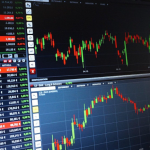Golden Rules That Every Forex Trader Should Follow For Success
Being successful in any profession requires a disciplined approach. When we talk about discipline, we think of a rule-based system; adhering to these rules allows us to easily attain our goals. In forex trading, you get a lot of options to consider and enough freedom to make choices. You can start with a personalised trading plan and make decisions on your own. But there are some golden rules that each and every forex trader needs to follow to increase their chances of success in the dynamic currency market
In this article, I will be explaining these rules in a beginner-friendly manner so you can get started without any dilemma and make sound trading decisions right from the beginning.
The first rule for forex trading success is entering the market with a long-term goal. These days, many beginners enter the forex space dreaming about overnight success or quick profits. Although it is possible to earn daily profits with short-term strategies like scalping and day trading, one needs to set long-term goals as it lessens your stress and burden. Being a newbie, you may not be able to make profits from the first day itself, and those who start with short-term goals end up being disappointed and desperate to reach their targets, and this mindset hinders their growth.
Thinking of forex trading as a shortcut to getting rich is a major mistake that many new traders make. They want to make money as quickly as possible and skip all the learning and planning processes essential for survival in the fast-paced forex market. You need to be aware of the risk and build a plan that helps you to stay consistent in the long run. A vast majority of newbies end up quitting too early as they fail to set long-term goals in the first place and are only interested in quick gains.
Trading in the forex market requires a good amount of knowledge about the fundamental and technical concepts. Firstly, you need to understand the theory behind trading and then apply it in real life to get the desired results. Reading about the concepts and comprehending them surely takes some time for a beginner, but making calculated moves in the live market is even more challenging for someone with no prior experience. This is why you need to start with demo trading, where you get to experience forex trading without any risk, and it is perfect for practising and polishing your skills.
Here, you can also use all the available trading tools designed to help you calculate crucial trading values for better decision-making. This includes various features, order types, and basic tools for trading forex, like trading calculators. As a beginner, it may take some time to get used to all such tools and their functions. Being well-versed with a demo account makes live trading easier when switching to a real account later. Learning is also about researching and studying market conditions and factors that influence currency prices. This will help you adjust to the market changes as and when needed.
It is an unwritten rule that you should only get into forex trading once and when you have a solid strategy. The currency market constantly fluctuates, and its volatile nature creates many opportunities for traders, but you can also encounter huge losses due to a small mistake. Your chances of making profits in a trade depend on your trading plan’s viability and risk management system. Sometimes, traders are unable to retain their success even after discovering a profitable strategy. They end up losing a lot as they deviate from their original plan.
The key reason behind this is the inability to control emotions, as traders tend to make poor decisions out of stress, greed or excitement. This is what we refer to as emotional trading. If you see yourself placing trades that do not connect with your plan, you need to stop yourself and bring your attention back to the plan. Another habit that makes you deviate from your trading plan is overtrading, which can quickly wipe out your trading capital. In short, new traders are more prone to ditching their plans while chasing profits. However, building trading discipline and prioritising logical decision-making can save you from making such costly mistakes.
The fourth rule is closely connected with risk management, as a trader should never risk anything more than what they can afford to lose. It is about assessing your risk tolerance and setting risk per trade in accordance with your risk appetite. You should be able to withstand the risk to a certain extent, but risking it all is not a good approach in trading. Even brokers make sure that you have enough funds to cover the losses by specifying margin requirements for a specific trade. They will even liquidate the position in case your margin levels fall during a trade.
The margin requirement for a trade varies depending on your account base currency, currency pair chosen, trade size, and leverage availed. You can make use of a margin calculator to calculate margin requirement for a trade. Leverage is a great tool that can help you to make the most out of your winning trades, but you need to use it to the limit, as it can also make you lose more if the market moves against you. The ideal percentage of risk you can take for a trade is 2% of your account balance, and you can even go lower if your risk tolerance is low.
The next rule that you need to follow for forex trading success is utilising technology in the best possible manner. Technology has a key role in the trading process as we need to rely on it for every step, from accessing the live market to executing trade through an online trading platform. You can also use technology to build and implement your strategy with less manual intervention. Placing stop loss and taking profit orders are also a form of trading automation. Even basic tools like currency calculators work using technology.
You need to pay attention to the technology while choosing your forex broker. Make sure they offer a technology-driven platform with all necessary tools and features along with fast execution. Even a small bug or glitch can ruin your trading experience and may also result in losses. If we look at the technological aspects on an advanced level, the use of EAs or bots is one of the most innovative trading solutions that can be utilised for passive forex trading. Even platforms with managed forex accounts and auto-copy features are heavily dependent on technology for an effortless and efficient trading process.
After becoming a forex trader, you will be actively engaged in placing trades with the anticipation of a favourable fluctuation in exchange rates. You will be choosing trade setups and planning trades based on market analysis, which can be either technical or fundamental. You also choose to strike a balance between the two to make better trading decisions. Most beginners rely on technical analysis and often use a smaller time frame for watching the markets. However, we can’t go without mentioning the importance of looking at the bigger picture to assess the market scenario as a whole.
It truly gives you an edge as a trader because you might notice relevant things that other traders dismiss as unimportant. Looking at the bigger picture is also about being less concerned with the result of a single trade and assessing your performance based on the history of several trades over a period. Wins and losses are part of the process, but looking at the overall profitability and account drawdown tells you about your skill level as a forex trader. It also helps you evaluate your strategy’s success rate, as just one trade is not enough to judge your system’s viability.
The Bottom Line
To sum it up, becoming a profitable forex trader is possible when you possess the right amount of skills and stick to your strategy with a disciplined approach. It is important to enter the market with a long-term approach. Because building a successful trading career will take some time and effort. You may lose sight of your goals or even give up in the absence of a well-defined plan. Failures and setbacks are part of the trading journey, but those who don’t break the rules will surely reach their destination sooner or later.








